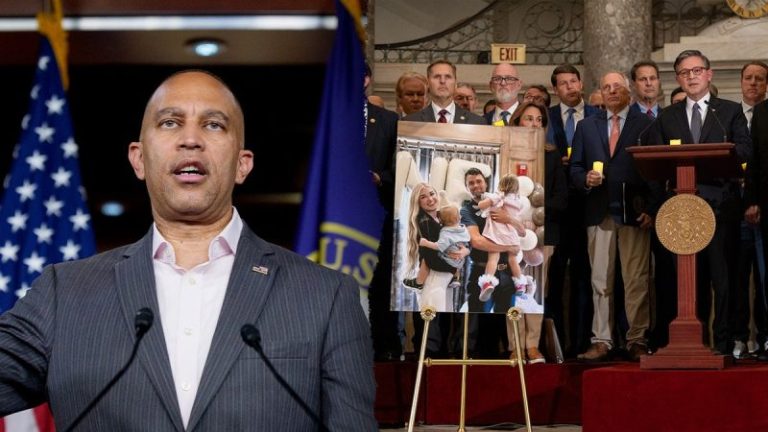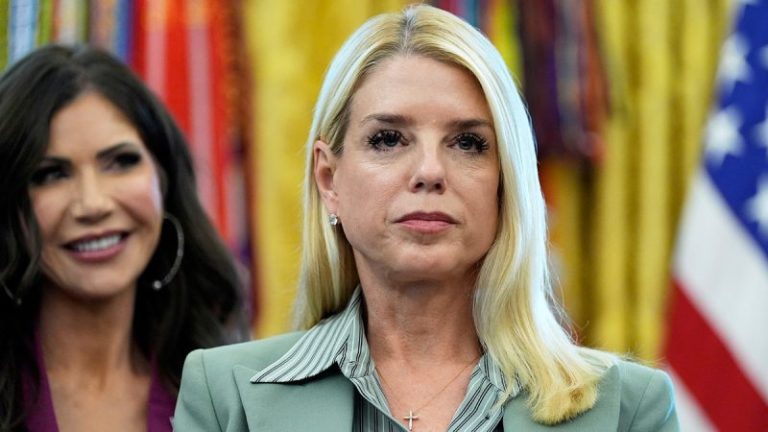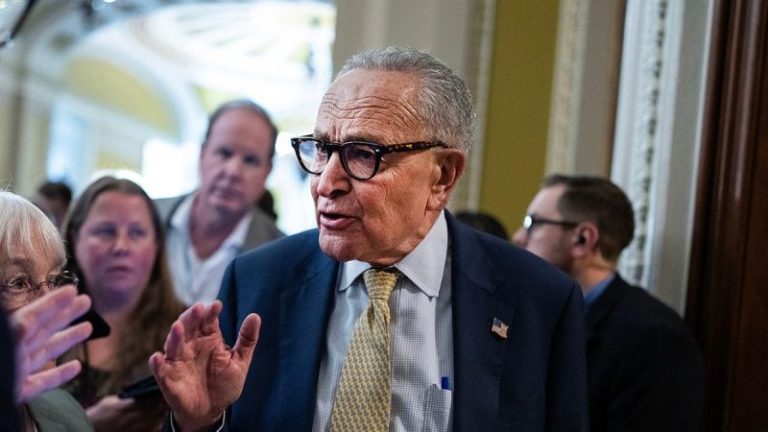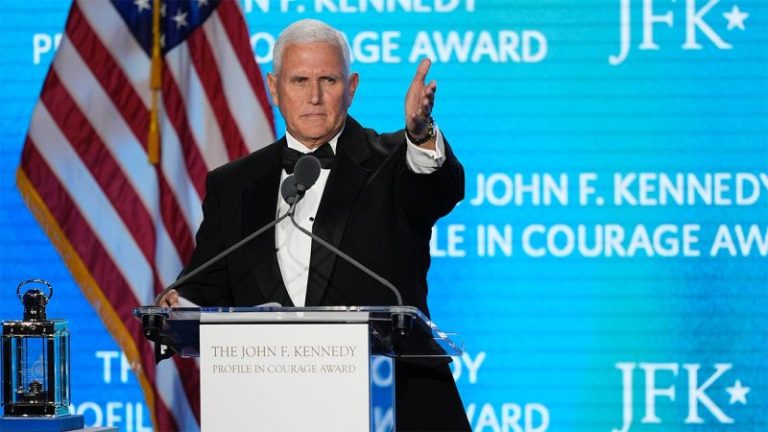Senate Republicans are calling foul on Senate Democrats’ opposition to the GOP’s short-term plan to keep the government funded, calling it hypocritical.
House Republicans on Tuesday unveiled their seven-week funding extension, known as a continuing resolution (CR), which congressional Republicans argue is as ‘clean’ as can be. That means that the bill largely lacks any additional spending or policy riders.
But Senate Democrats have dug in deep on their rejection of the proposal, increasing the likelihood of a government shutdown come Sept. 30. It comes after Democrats previously warned Republicans not to use government funding as a political weapon when Democrats were in charge of the Senate.
Senate Majority Leader John Thune, R-S.D., will ultimately need Democrats to pass a government funding patch.
He argued that under former President Joe Biden’s administration, Senate Democrats overwhelmingly voted for 13 CRs.
‘Ninety-six percent of the Democrats voted for all 13 of those,’ Thune said. ‘This is, again, a new practice that’s been invented because of Trump Derangement Syndrome, and because these Democrats hate giving this president anything.’
Senate Republicans are now titling the possibility of a partial government shutdown as a ‘Schumer Shutdown,’ given Senate Minority Leader Chuck Schumer, D-N.Y., and his caucus’ unwillingness to support the GOP-authored bill.
‘Now, all of a sudden, they can’t vote for it? It’s ridiculous,’ Sen. John Hoeven, R-N.D., told Fox News Digital. ‘That’s exactly where they’re coming from, and it should be called the ‘Schumer Shutdown.’’
When asked why Democrats were entrenched against the Republicans’ bill, given their previous push for clean stopgaps, Schumer argued that ‘we’re in a much different situation’ after the GOP passed President Donald Trump’s ‘big, beautiful bill,’ the $9 billion clawback of foreign aid and public broadcasting funding, and the administration’s move to claw back an additional $5 billion in foreign aid.
He also ripped Thune and House Speaker Mike Johnson, R-La., for not sitting down with him and House Minority Leader Hakeem Jeffries, D-N.Y., to negotiate a spending deal. Thune countered that his office is right around the corner from Schumer’s.
‘They even refuse to have bipartisan negotiations,’ Schumer said. ‘We’ve always had bipartisan negotiations on this. Johnson put his bill in. No Democratic input, and that is why the Republicans are heading for us for a shutdown. We don’t want it.’
Part of the disagreement with the bill also stemmed from Trump’s edict that Republicans shouldn’t ‘even bother’ with Democrats and that ‘we have to get Republican votes.’
Sen. Brian Schatz, D-Hawaii, told Fox News Digital that all Democrats needed was for Trump ‘to take back what he said about the process needing to be more partisan rather than less.’
‘If they go it alone, then it’s not unreasonable for us to say, ‘We wish you the best, but you won’t be getting our votes,’’ Schatz said.
Despite the saber-rattling, they haven’t said precisely what they dislike about the House GOP’s offering. They say it’s not so much about what’s in the bill, but rather what’s not.
The top Democrat on the Senate Appropriations Committee, Sen. Patty Murray, D-Wash., told Fox News Digital that it was a ‘lack of language on impoundments and the pocket rescission, things like that that we’ve been talking about.’
The other part is that the CR does not contain an extension to ObamaCare premium subsidies passed during the COVID-19 pandemic that are set to expire in December.
Democrats argue that an extension should be attached to the stopgap because insurance providers are teeing up new insurance rates ahead of the Nov. 1 open enrollment start date for the Affordable Care Act (ACA).
Senate Appropriations Chair Susan Collins, R-Maine, argued that lawmakers could wait until November to move on an extension.
‘You can wait,’ Collins said. ‘Because… they can keep the eligibility criteria steady for next year and have the revised eligibility.’
While Schumer and Democrats are expected to give Thune headaches throughout the ordeal, he may have to wrangle some fiscal hawks weary of CRs on his side of the aisle, too.
Sen. Rand Paul, R-Ky., argued that the spending levels set in the House GOP’s bill were the same as those set under Biden, which Republicans ‘all decried in the election.’
‘So any Republican who votes for this, I guess maybe they should apologize to Biden for being against his spending levels,’ Paul said. ‘Because they’re actually voting for his spending levels now.’
And Sen. Rick Scott, R-Fla., told Fox News Digital that he hadn’t thoroughly reviewed the text of the bill yet, but he noted he was not typically a fan of funding extensions.
‘The goal was always that we start having a real budgeting process, and so it’s really frustrating that we haven’t done that,’ he said.
This post appeared first on FOX NEWS










